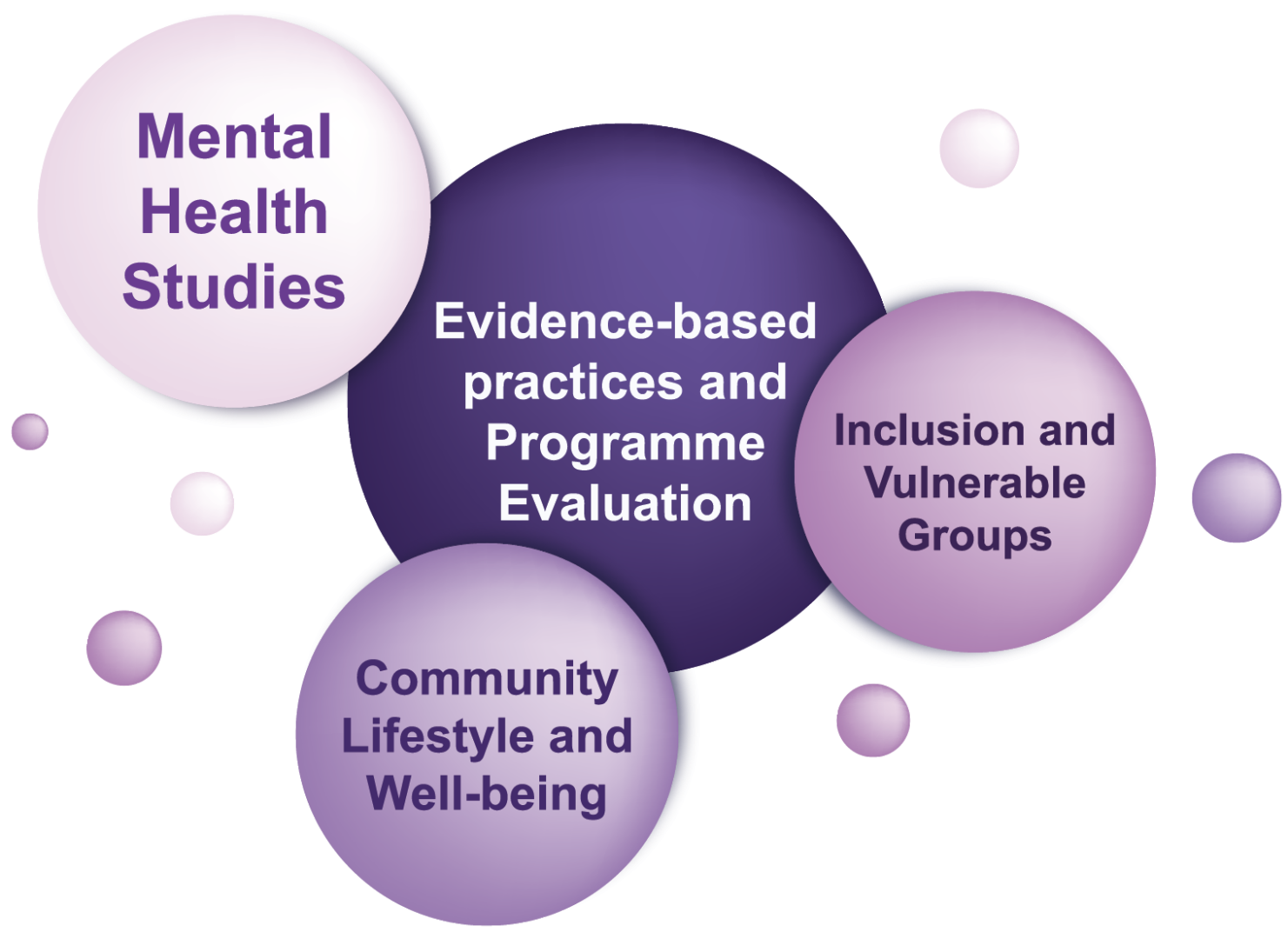T1P1 – Trauma & Resilience | Child Protection Research Group
Prof. Vitor Teixeira
Child Protection and Care in Macao: Building a Resilient, Trauma-Informed Community; The Case of Children and Youth in Residential Homes. This research project aims to develop a trauma-informed care (TIC) culture in Macao. The region, with a population of 683,000, faces various challenges related to Adverse Childhood Experiences (ACEs), such as bullying, natural disasters, domestic violence, and substance abuse. The COVID-19 pandemic has exacerbated these challenges, increasing the risk of trauma for children and adolescents. The project focuses on children and youth, particularly those in residential homes, aiming to build a resilient community by promoting trauma-informed policies, practices, and collaborations among professionals and organizations.
T1P2 – Trends of Depression
Prof. Augus Kuok
Depression screening of Macau citizens during post-pandemic period (For Community) (second semester 2024-25 for preparation, aim for Nov 2025 for data collection)
– The follow up study of the Depression screening in 2019
– Want to compare the one between 2019 and 2025 (hidden pre vs post pandemic)
– Need the involvement of Caritas
T1P3 – Assessing and Intervening in Personal Electronic Device Usage Across Age Groups in Macau
Prof. Cynthia Leong
This project aims to evaluate and intervene in personal electronic device (PED) usage among various age groups in Macau, including children, adolescents, young adults, middle-aged adults, and older adults. It will assess usage patterns, analyze impacts on mental health and social engagement, and develop tailored intervention strategies to promote healthy habits. Using a mixed-methods approach, data will be collected through surveys and interviews. The findings will provide valuable insights for policymakers and health professionals, ultimately enhancing well-being and fostering healthier lifestyle choices across all demographics in Macau.
T1P4 – Studies on Counseling, Gambling and Addiction
Prof. Edward Kwan
– Mixed-methods study on psychological well-being and coping of addiction counselors in Macau
– Application of a culturally informed Multiple-Self model for Assessment and Self-based Recovery Group work with Chinese women with addicts in Macau
– Application of a culturally informed Multiple-Paradigm Coping model for Assessment of Coping by family and Paradigm Shift Therapy to enhance coping by family with addicts in Macau
– Program Evaluation with New Services/Program (funding to be sought by SKH/USJ jointly) by SKH for family members of problem gamblers in Macau (the new services/program is an Action Research after the publication of study findings by SKH in mid-May 2024)
T1P5 – Workplace Studies | Work-life Balance
Prof. Maria Rita Silva
Work-life balance refers to the balance between the time and energy that one uses at work, relative to other areas of life, such as family, social relationships, hobbies, etc., and is considered one of the indicators of well-being at work. This research investigates some of the predictors and outcomes of work-life balance in order to contribute to the understanding of this phenomenon in Macau. This is an ongoing project, and data has been collected by applying a quantitative methodology, using a cross-section design, through self-response questionnaires to 549 full time workers employed in a variety of industries in Macao. Different aspects of the data collected have been used for the elaboration of three Master dissertations. In the next stage of the project the data will be analysed and interpreted for the elaboration of a manuscript to be published in an academic journal.
T1P6 – Organizational Justice and Culture at Work
Prof. Maria Rita Silva
Organizational justice refers to the perceptions of employees about how fairly they are treated at their jobs. This study aims to explore the relationships between overall organizational justice perceptions, work empowerment, job satisfaction and turnover intentions. Additionally, I aim to investigate the role of cultural value orientations, namely collectivism, and power distance in those relationships. This is an ongoing project, and data has been collected by applying a quantitative methodology, using a cross-section design, through self-response questionnaires to 359 expatriate and local full-time workers employed in a variety of industries in Macao. So far, different aspects of the data collected have been used in two on-going Master dissertations. In the next stage of the project the data will be analyzed and interpreted for the elaboration of a manuscript to be published in an academic journal.
T1P7 – Workplace bullying and sexual harassment at work
Prof. Maria Rita Silva
Workplace bullying refers to the repeated practice of unreasonable and inappropriate negative treatment of a person by another or others in the workplace. Workplace bullying includes different types of negative behaviours, while sexual harassment at work refers to specific sex-based behaviours that are unwelcome and offensive to its recipient. While both can contribute to a hostile work environment, negatively affecting employees wellbeing and organisational effectiveness, little is known about their prevalence in different industries in Macao or what are the characteristics of their main perpetrators and targets. In this new research project, I and two Master students, aim to analyze these aspects by elaborating and distributing a self-response questionnaire to employees of different industries in Macao. Later the data collected will be used for the elaboration of the two Master dissertations, and the eventual publication of a manuscript to be published in an academic journal.
T1P7 – Support, Resilience, Work Engagement and Burnout among workers in the hospitality industry
Prof. Angus Kuok
– Impacts of support and resilience on work engagement in Hotel industry
– Re-defining the JDR model by using Work Engagement and Burnout in the hospitality industry
T1P8 – Stress management of people from age 35-40
Prof. Jayson Lou
During the COVID pandemic, quite a lot of people were affected by mental health illnesses, nevertheless, still a lot of people can overcome the difficulties of that. Reviewing from the pandemic, the researcher hopes to learn about how the people keep their strength in facing challenges, and how the community social sectors can help in the resources provided to resolve the issues.










